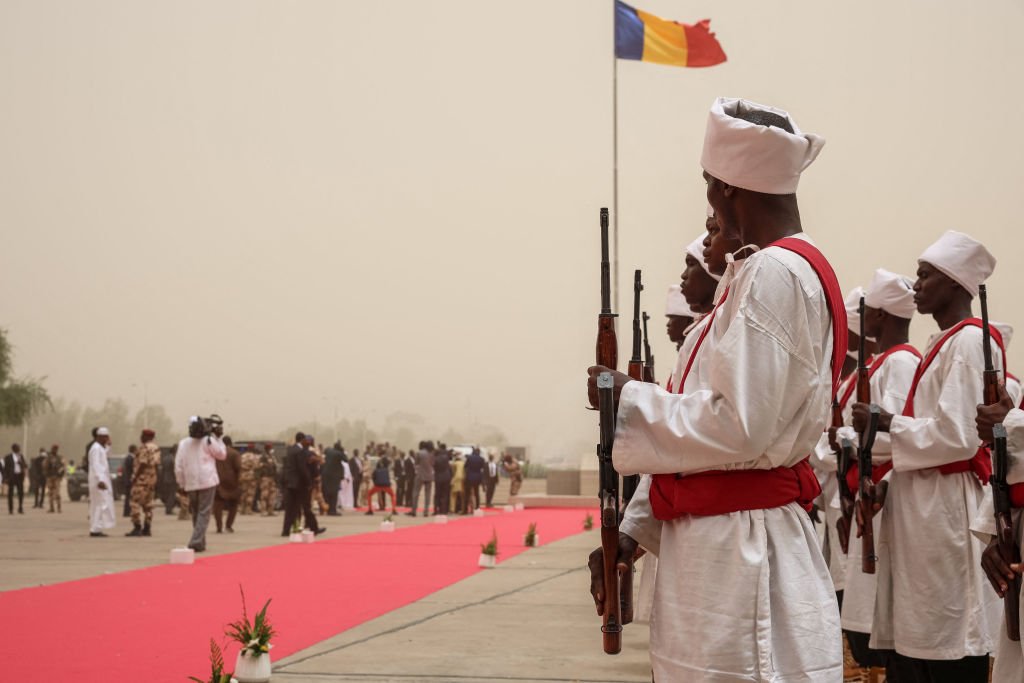
Introduction
CIVICUS’ previous update highlighted how the political and civic space was further tightened in the months leading up to the vote that took place on 6th May 2024. On 27th May, the new Government was announced, made up of people loyal to President Mahamat Idriss Déby Itno. The new Republic seems to be maintaining the old habit of silencing opponents and civil society.
On 21st September 2024, Gam Robert, Secretary General of the Socialist Party Without Borders (PSF) was “kidnapped by intelligence agents”, his party said, adding that he “has been harassed and intimidated” since the assassination of fellow member Yaya Dillo in February 2024. The Center for Development Studies and the Prevention of Extremism demanded his immediate release.
The Electoral Commission announced that the legislative, provincial and communal elections will take place on 29th December 2024.
FREEDOM OF EXPRESSION
🚨 Arrestation de notre correspondant Ibrahim Hassan Mouhadjir par les services de renseignement à Abéché alors qu'il exerçait ses fonctions journalistiques. Nous dénonçons fermement cette atteinte à la liberté de la presse et appelons à sa libération immédiate.… pic.twitter.com/mbnW9mjDl9
— tchadinfos (@tchadinfos) July 2, 2024
Journalists threatened, detained; websites suspended
On 1st July 2024, two journalists reported on the death of a rickshaw motorcyclist by police officers in the province of Ouaddaï. The next day, on 2nd July 2024, the head of the external security service of the province arrested the journalists Ibrahim Hassan Mouhadjir of Tchadinfos and Saleh Hassan Adoum of Tribune Echos. Various press outlets and organisations denounced these unjustified arrests.
On 23rd July 2024, journalist Djikoloum Frédéric Ngardodjim, editor-in-chief of the radio station La Voix du Paysan in Doba, was threatened and had his telephone confiscated by a judicial police officer named Ndoumde Palkoubou Karos. According to the news site Al Widha, the journalist had just answered a question on a rumour about the death of a prisoner at the hands of judicial police, a question raised during the visit of the president of the Chadian branch of Action by Christians Against Torture a day earlier. Lieutenant Ndoumde, dissatisfied with the situation, threatened Djikoloum.
Between 26th and 29th July 2024, Chad’s leading news website, Tchadinfos.com, was suspended and several media outlets have been forced to withdraw articles after a former presidential adviser managed to censor them using a US law. Former presidential adviser and businessman Abakar Manany copied and pasted all national articles about him in a blog. He then contacted Tchadinfos.com’s host, based in the United States, to claim plagiarism. Under the U.S. Digital Millennium Copyright Act, the website’s hosts have to suspend a news site when a complaint is lodged until the offending content has been removed or evidence to the contrary has been presented. Abakar Manany was dismissed in 2023 and wanted all articles about it to be deleted. According to Reporters Without Borders, at least five other media (Le Pays, Le N'Djam Post, N'Djamena Actu, Tchad One and the African Press Agency (Apanews)) had received formal notices from Manany to delete the articles in question and put them on hold so that their sites would not be blocked. Tchadinfos.com refused to comply with the request. Abakar Manany denies any involvement.
A few days later, on 7th August 2024, the editor-in-chief of Tchadinfos.com was detained for 24 hours in the premises of the National Security Agency. Journalist Oumar Ali Badour had been summoned to the police station and was taken from there to the National State Security Agency by hooded men for unknown reasons.
Chad provides an appalling environment for journalists. They face pressure, assaults, kidnapping or killing and operate in regions with armed groups. In 2023, Reporters Without Borders warned that without change and more protection for the press, the Sahel could become “Africa’s biggest news and information black hole”. On 24th September 2024, in Bamako, more than 500 local radio stations in West Africa launched an appeal for the protection of journalists in the Sahel.
FREEDOMS OF EXPRESSION AND ASSOCIATION
A key figure in the process that led to the trial of Hissène Habré before a special African court, American lawyer Reed Brody was scheduled to present his book recounting the pursuit of the former dictator. https://t.co/XKrbx1byLh
— The Africa Report (@TheAfricaReport) October 3, 2024
On 2nd October 2024, military officers suspended a conference featuring the Hungarian-American lawyer Reed Brody who had been invited by the cultural section of the United States Embassy, in partnership with the Centre for Development Studies and Training, to present a book about the judicial pursuit of Hissène Habré with two colleagues. Police forces invaded the venue and dispersed the participants. The security forces detained Brody and expelled him from the country later in the day. In late February of this year, victims of former Chadian dictator Hissène Habré finally began receiving compensation.
FREEDOM OF ASSEMBLY
Sudanese refugees protest against dire conditions in their camps
More than a million Sudanese refugees currently live in Chad. Humanitarian agencies are struggling to provide adequate assistance. At the Iridimi refugee camp near the border, Sudanese refugees were protesting against the lawlessness in the camp in November 2023 and for food, water, health, education and security in May 2024. In July 2024, the newly arrived refugees in the camp of Djabal protested against famine in front of the UNHCR agency. On 14th August 2024, refugees at the Milé site in eastern Chad demonstrated against the food shortages and prevented humanitarian workers from entering the site.